How I Plan a Homeschool
Planning for a homeschool can feel daunting, can’t it? I know there are 1,000 good ways to plan a homeschool day, and I have heard a lot of ideas. After walking the walk for about two years now, I am no expert, but I do have some experience. How do you even BEGIN look at the homeschool planning process? Look at it with the long view in mind.
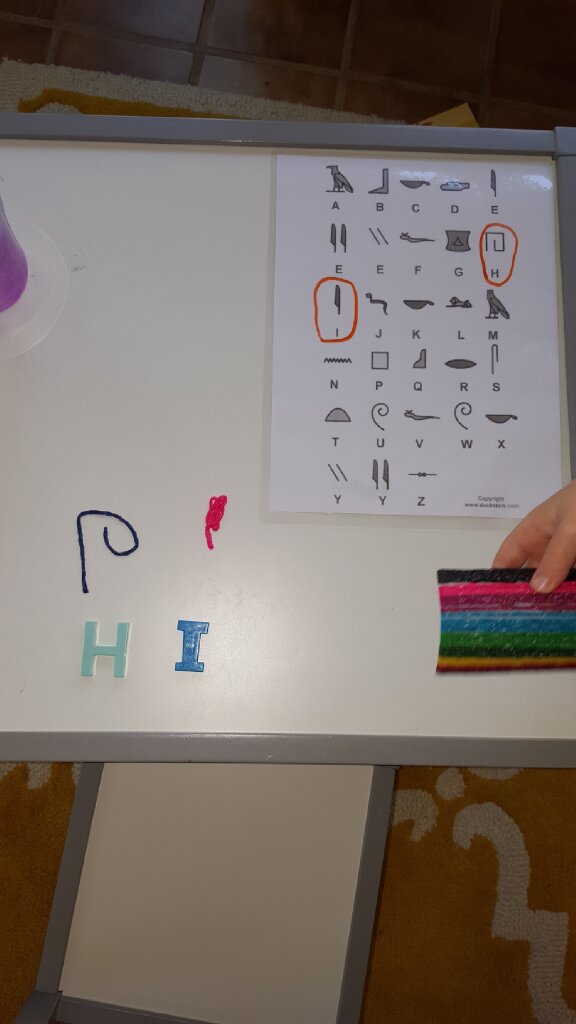
The Long View
What is the long view? High school graduation. You do not set out on a trip without knowing where your next stop is going to be, or where you’re going to be spending the night, do you? So, you at least have a handle on high school graduation requirements for your state. High school graduation? I know that can seem like eons away, but if you are aiming toward schooling your children and you know that it will not end (theoretically) until high school graduation, then that is what you look ahead to. This is not to say you need to map out every single course your children will need between now and then (as state requirements are subject to change over the next ten years or so). However, I think it wise to at least stay abreast of the graduation requirements for your state each year. Noting changes from year-to-year can help you shape your own trajectory.
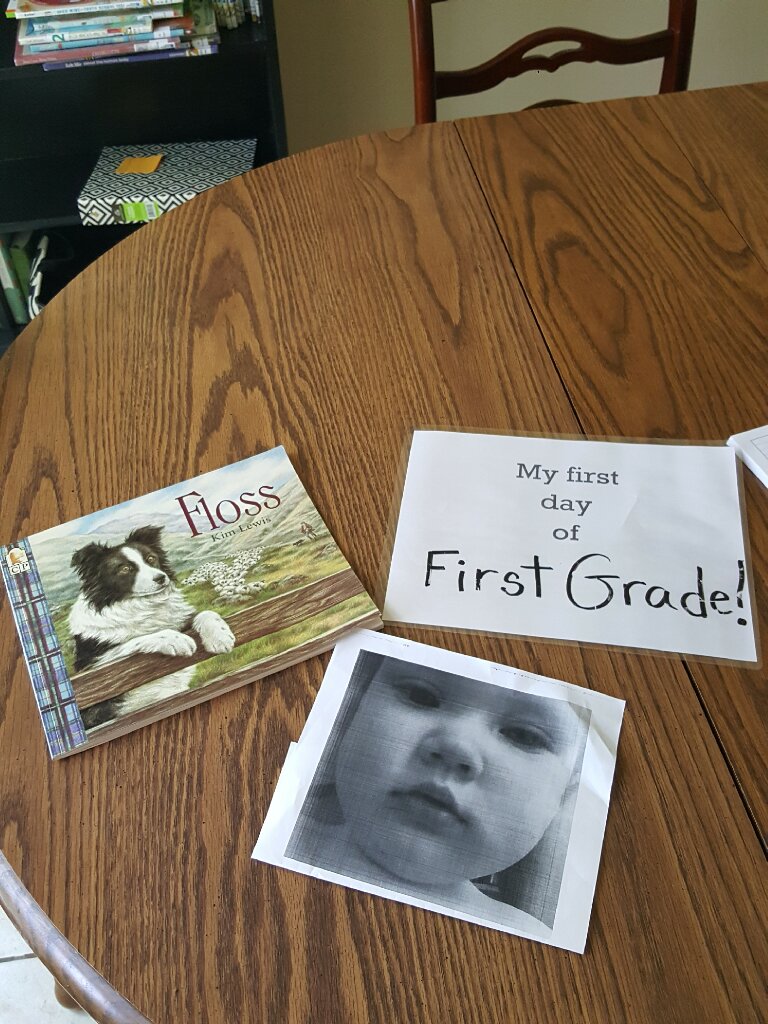
The Whole Person
Your doctor weighed in and told you that you are going to have to change some things about your diet if you want to prolong your life. You do not set out to make healthy changes in your diet without first researching what is healthy…do you? What components of a meal do I absolutely need to include or exclude in order to flourish and perhaps lower my bad numbers and raise my good ones? Well, the same goes for homeschooling. You are not going to cultivate and nurture good character and virtue in a child if you do not feed him or her the good ideas. Yes, this is absolute truth. There is a standard. In our home, it is the standard of Christlikeness. We fail daily, HOURLY, and we know that alone, we are not capable of growing in Christ. It is the Holy Spirit’s work and not ours. However, God has tasked us with teaching our children what is true and right (Deut. 6:6-7). If we are feeding them ideas that are lacking, then it comes as no surprise that they will be deficient in those good virtues. So, the purpose of our homeschool is to start with the heart, then tailor the academics to what the heart is able to handle. For example, the virtue of obedience and respect for authority must be communicated first before we can begin teaching our children to “do as I do” and work hard at something we are asking them to learn.
So, when you think about planning your school years – I say years, because you will be with them for years – think about who you are teaching. You are teaching people. What is a person? How do you define a person? This idea is central to determining the way you will plan your homeschool, from what you prioritize to how you order your day.

Cultivating A Childhood
What kind of childhood are you trying to cultivate for your children?
What rhythms do you want to establish in the home that will anchor your family throughout your time together, under one roof?
What does a full, lovely childhood look like, in your mind, for your children?
What are some anchors going to be in any given day (i.e., family meals)? What activities might compete with your family’s anchors?
What community are you a part of that you can depend on to be there in the tough times?
What other adults care about your children and their character-formation?
Is love communicated in your home, even after disagreements and hurt feelings?
What traditions are you beginning that breathe life into your family and unite its members closely?
So, we must take a look at virtues and set up rhythms in the home to nourish those virtues. This year, we started both a family movie night and a family game night (each on different nights). That has helped unite us better.
The dinner table is chaotic these days (with 6, 4, and 2 year-olds), but I sure do pray the faithful anchor of family meals will breed more unity and love. Using the family anchors to segue into more family anchors, I plan to do more reading aloud at the dinner table, once we are beyond the survival years of training kids to eat their food. Some families might use the dinner time as a devotion time, too. Others might tack on a family game time to the end of dinner, to cultivate unity and togetherness. It doesn’t have to be an elaborate board game – it can simply be a game of “I Spy”, “Telephone”, or recounting knock-knock jokes (depending on your kids’ ages).
A Burger Must Have Meat

You do not make a burger and exclude the actual meat (well, unless you are a vegetarian… we can talk later)! Core subjects, reading/language arts and math are essential to prioritize in planning a homeschool year. Interdisciplinary studies can fall around the meat. There are numerous ways to weave in history, geography, and science into the early years if you just choose good books. I love how we can gain access to booklists at our fingertips! The Living Books Library is one with which I plan to familiarize myself. Reshelving Alexandria: Curating Legacy Libraries comes highly recommended by a friend. My point is, the interdisciplinary subjects will take care of themselves! The core subjects are a must. No matter what curriculum you choose, it is a nonnegotiable part of the day. Planning the core subjects first will give you an idea of what kind of wiggle room you have for all the other lovely things you want to have in your homeschool day. Do not forget! Morning time can be a great tool to incorporate some quick and easy core skills practice. For example, our Math Loop will include a word problem from Bedtime Math (differentiated for each child), practice with looking at the analog clock to tell time, counting exercises, and number sense practice (Number of the Day). Morning time is just another way to get in some good stuff that is probably going to get forgotten in a daily lesson, unless the curriculum has built-in review each day.

Knowing the Subjects You Want to Cover
I try to set out each year with a clear expectation of what subjects I will be teaching. The Well-Trained Mind does a good job of outlining what those subjects could be, and even provides a tool for curriculum planning, the Curriculum Planning Worksheet. I just filled mine out today. It was especially helpful in getting me to think about how long I will devote to teaching different science fields in the upcoming year (earth vs. animal/plant kingdom). Since Classical Conversations is teaching Scientific Classifications and Earth Science this year, I will be specifically looking for curricula that cover each (Pond and Stream and R.E.A.L Science Earth Environmental, Level One). The Curriculum Planning Sheet gives options to check off different approaches to teaching each subject. For example, you could use the “primer approach” or the “Orton-Gillingham approach” when you teach reading skills. You could teach math using a curriculum that is heavily “procedural” or “conceptual” in its delivery. Either way, the sheet is a great organization tool.

Zoom In
You have 36 weeks of school (16 weeks of break), depending on your state’s/country’s laws. This is what I do:
FIRST:
-Plan breaks first. Make sure you and your spouse are on the same page, and you know one another’s schedules. Use the breaks for vacations, family time, and built-in buffer/sick time. I try to make sure my breaks involve some kind of educational trip or activity that correlates with the history we are learning that year. Put these breaks into your planner FIRST.
NEXT:
-Plan your terms. A year can be subdivided into terms. How many weeks are you aiming for per term? They do not all have to be the same length of time. Where does each term begin and end? It’s up to you. Look at the holidays. Look at the breaks. What do you want to cover each term? What theme do you want to focus on each term? Look at the weeks within each term. During what time of year will they be? What do you want your ratio of outside to inside time to be during each term (it fluctuates based on season, right?). What seasonal activities can you incorporate into your weeks and even connect it to something you are learning that term? If you are part of a CC community, when does your CC year start? Will you begin your school year prior to the CC calendar? If so, how many weeks will be prior to the start of CC? Will it be considered a term? Will you teach routines and rhythms during that time, layering on new elements of the school day, or will you dive right in to teaching new material, all at once? Does CC content on any given week line up with the interdisciplinary content you are trying to teach that week? I type up a YEARLY schedule with TERMS and BREAKS, then print it out for safe keeping in a 3-ring notebook I can easily access. I print out an extra copy for the refrigerator.
LAST:
-Plan your booklists. Once you have your terms mapped out and you know WHICH WEEKS will be within each term, and WHAT THEMES YOU PLAN TO INCORPORATE IN YOUR TERMS, it is time to plan your booklists. Plan booklists, by subject, for each term. You can just stick to the interdisciplinary subjects (science, history, geography, poetry, etc.) Remember, you have already planned your core subjects, and you know what the literature suggestions are for teaching reading and math. Make sure you are not neglecting the core subjects: MATH, PHONICS/SPELLING/COMPREHENSION/FLUENCY/GRAMMAR.
Once I have planned my booklists, I like to sit down with my planner and map out the BREAKS and TERMS on the calendar provided in the planner, then I number off my weeks. I keep a master list of books that I have used each term. Do not forget to include titles you have picked up from the library. Printing out your library loan history can be helpful.
After I number off my weeks (IN PENCIL!) in the planner, I make sure I have a clear idea of the start date of school, as well as the start date of any other academic endeavors (i.e., CC or nature co-op). Then, I plan by week. I usually try to plan the first term in one sitting, but after that, I usually plan two weeks at a time. I also make sure that I have a daily schedule typed out and posted somewhere in the house. I keep a copy in that dear, old 3-ring notebook, along with my Curriculum Planning Sheet and the booklists for each term. This daily schedule keeps me aware of our start time and the ORDER to our day. I do not plan by the minute! I only know what ORDER things should take place, each day. Next year, I plan to start using a block schedule (see my section Looking Ahead). This way, if we begin subjects on the hour, and one of my kids finishes ahead of time, he or she has the rest of the hour for unstructured play. This ensures my kids get that unstructured time they so desperately need. And it also gives us time to digest what we have just learned. That is my hope, at least.
All of these are merely things I have tried or am going to try this upcoming year. I have planned before, and it can be a trial-and-error process. I just want you to know that you can go about it methodically. I plan to post more frequently about the booklists we are curating, so stay tuned!
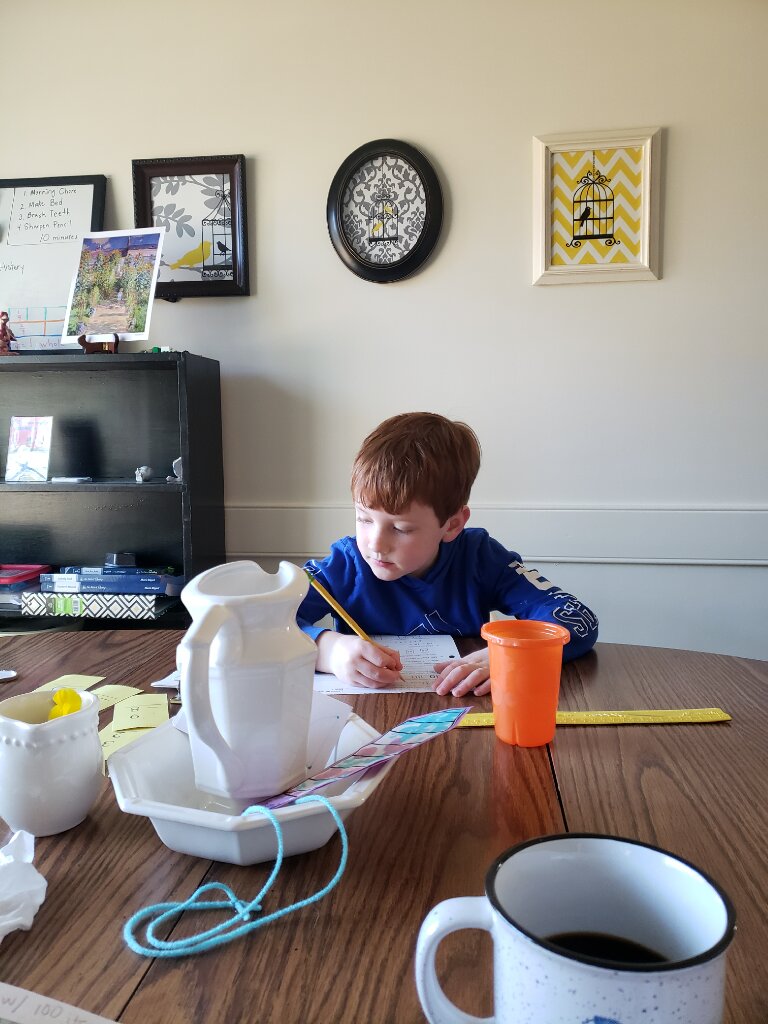
Faithful Execution
Faithful execution of any given plan is the key here. No need to be a “planning queen” when you cannot execute the plan. I am speaking to myself, here. I have gotten better, but I am still a work in progress. Reevaluating every 3 to 4 weeks is going to be something I want to do this upcoming year. What is working? Where can we trim some fat? What should we emphasize more? So, take heart. Faithful is the key word. Go with something and do it faithfully. Don’t they say that 21 days are all that we need to keep a habit going? Maybe I am oversimplifying because I know the battles we come up against weekly that truly throw a monkey-wrench in our plans. A sick child here, a visiting relative there, just an “off” day… it happens. Be encouraged! You are not alone. PRAY over your plans, asking God to make them more HIS plans, and not your own. Pray for faithfulness in the right areas. God knows your family, and He knows what is best for YOUR GOOD and HIS GLORY. There is no formula. Just faithful execution after some thoughtful planning and prayer. So, go GET ‘EM!

*Some of you have asked about a CC Cycle 1 booklist. Yes, I am curating one. I will make sure to get it to you before the end of the summer. *
Bye, for now! Enjoy the weekend!
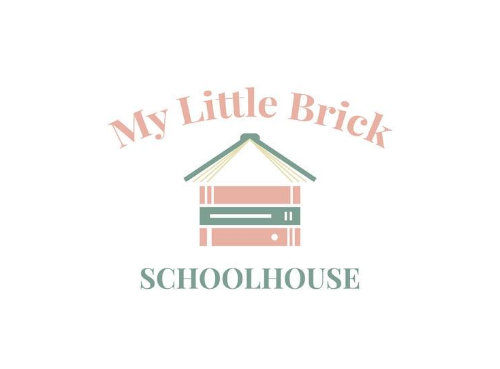
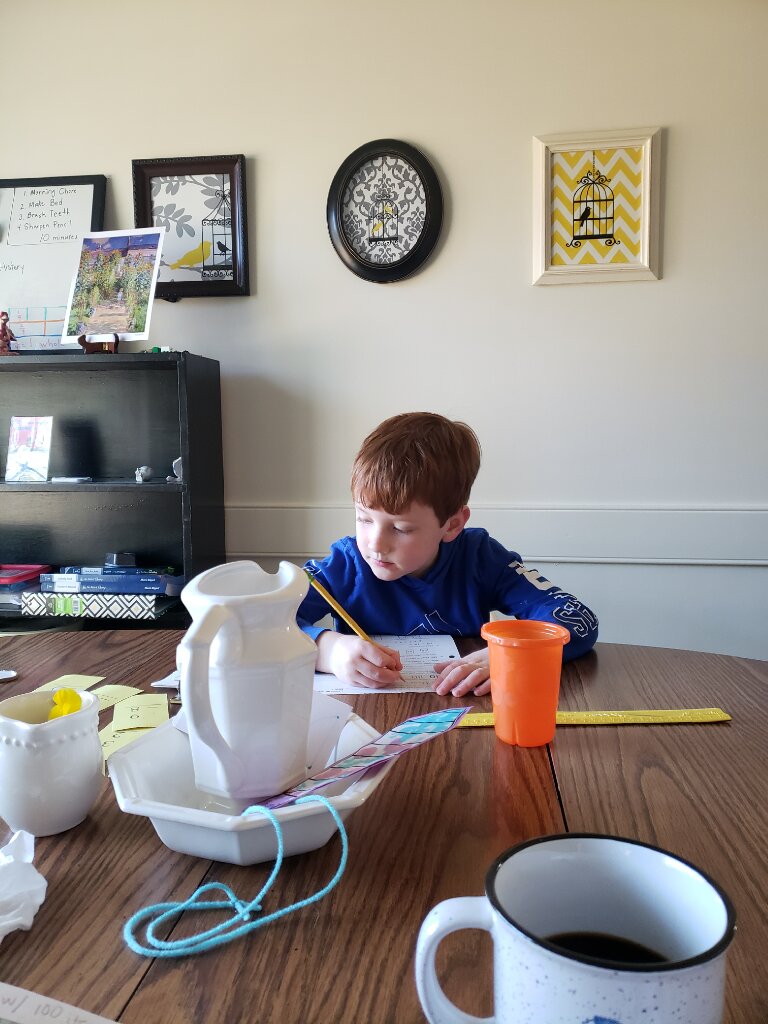
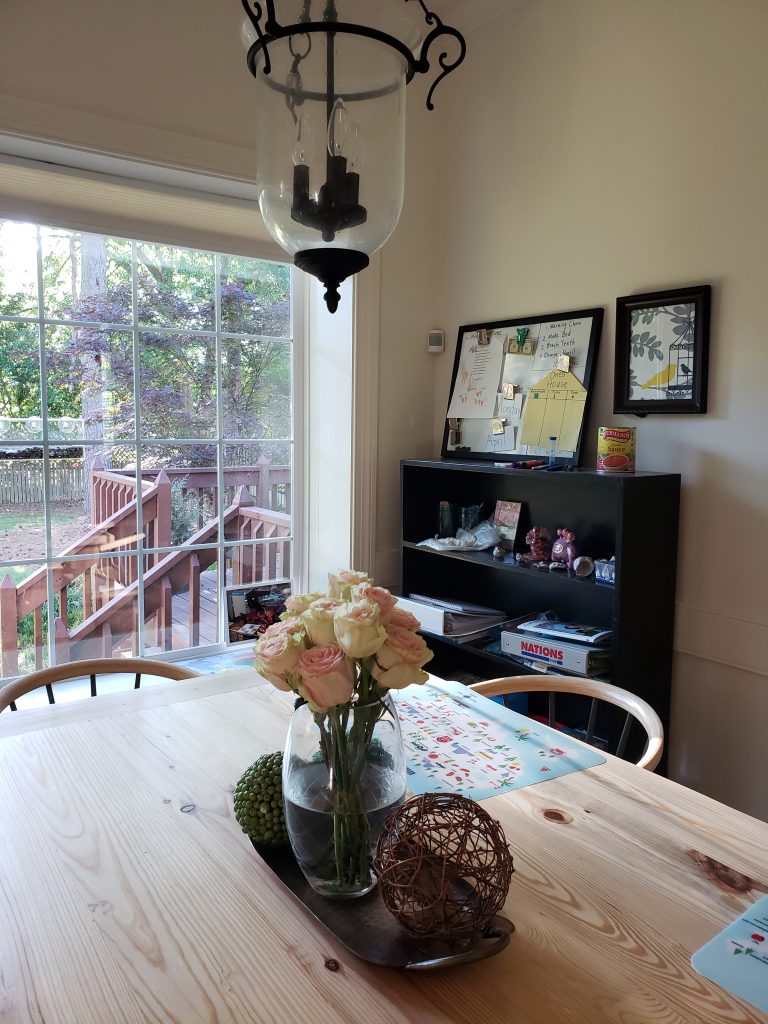
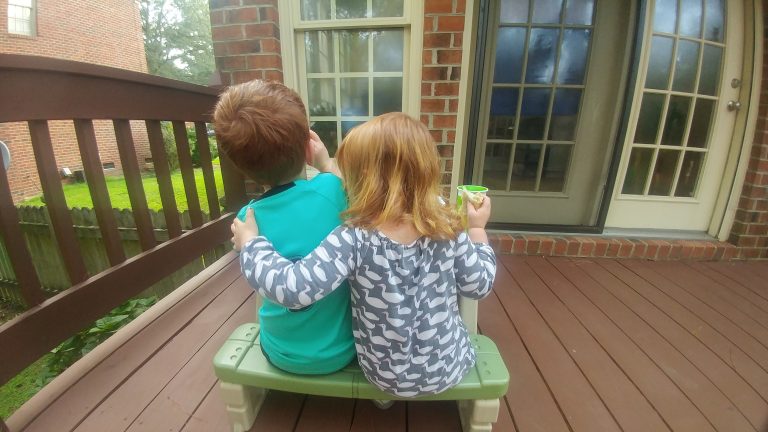
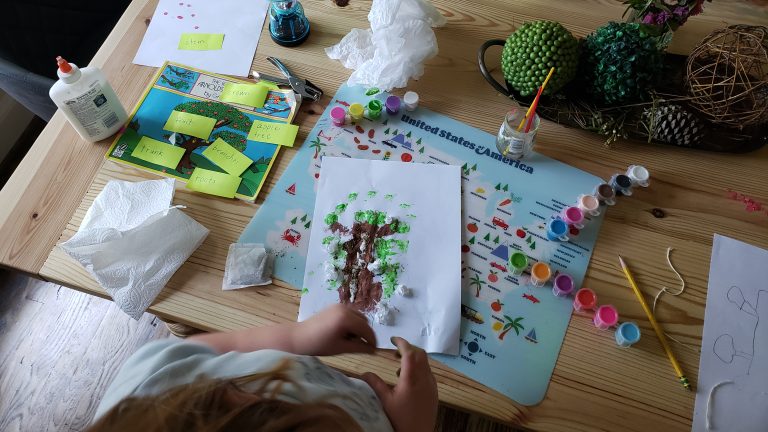
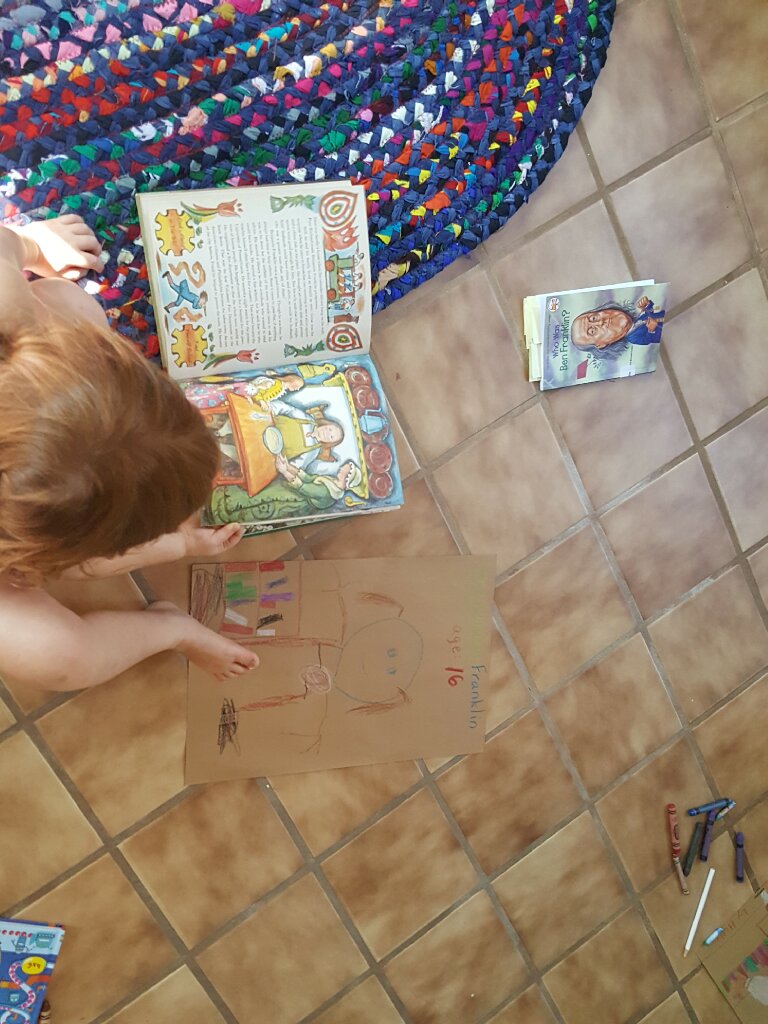
Thank you for sharing!
You are welcome! Thanks for the feedback.